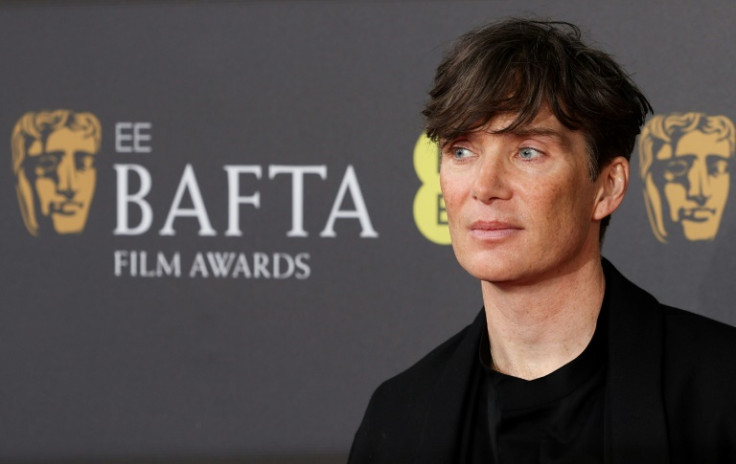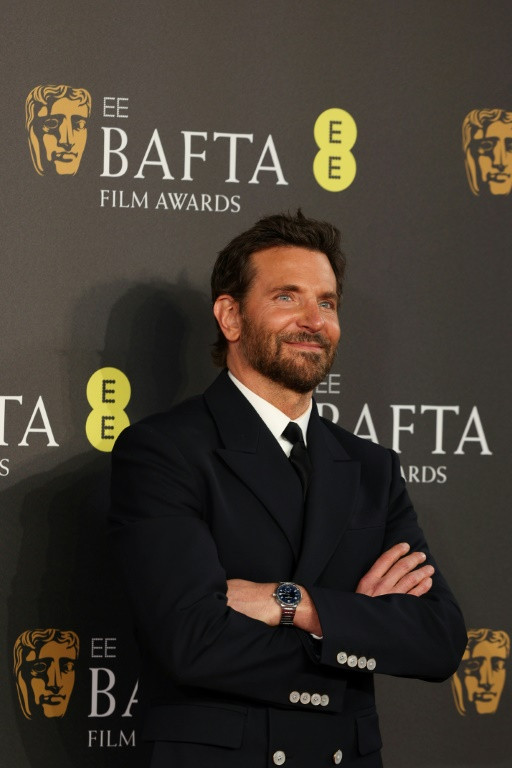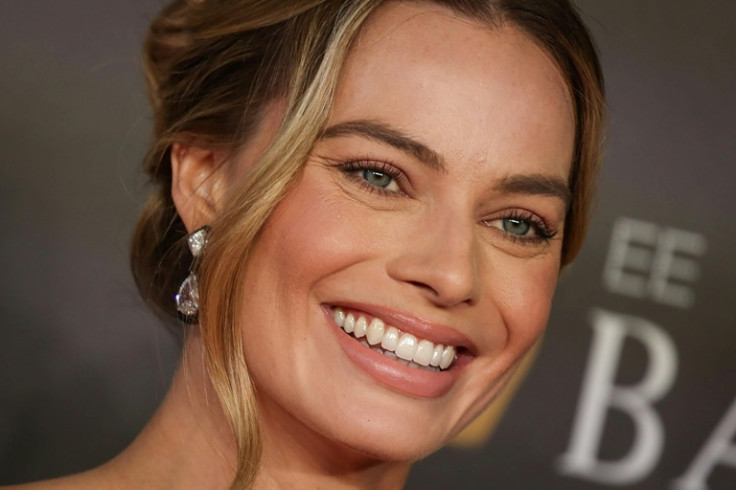'Oppenheimer' Dominates BAFTAs In Major Oscars Boost

"Oppenheimer", Christopher Nolan's epic movie about the creation of the atomic bomb, swept the board at Sunday's BAFTA film awards in London, delivering a serious statement ahead of next month's Oscars.
The movie earned seven awards in total, including best film, best director for Nolan, best actor for Cillian Murphy and best supporting actor for Robert Downey Jr.
In the film, Murphy plays J. Robert Oppenheimer, the US theoretical physicist often called the "father of the atomic bomb" who was haunted by the consequences of his creation.
The film has grossed more than $1 billion, already won big at the Golden Globes and Critics Choice Awards and is now the clear frontrunner for Oscars glory.
It was Murphy's first BAFTA, and he thanked Nolan for "seeing something in me I probably didn't see myself" when collecting the award at the ceremony in London's Royal Festival Hall.
He later told reporters the success was "mind-blowing", adding he was "thrilled and a little shocked".
Despite boasting numerous commercial successes such as "Inception" and "The Dark Knight", Nolan had never won the best director BAFTA before.
It was Downey Jr's second BAFTA, having won the best actor gong 31 years ago for playing Charlie Chaplin.
On accepting the award, the US star joked that Nolan advised he attempt an understated approach to the role of Lewis Strauss, a member of the US Atomic Energy Commission, in order to restore "my dwindling credibility".
It was also a good night for surreal dark comedy "Poor Things", which won five awards including best actress for Emma Stone, who also won the gong in 2017 for "La La Land".
In the film, Stone plays a Victorian reanimated corpse brought back to life with the spirit of a child by a mad scientist in a female "Frankenstein" story.
The US actress has already scooped Golden Globe and Critics Choice best actress awards for her no-holds-barred performance.
She beat off competition from "Barbie" star Margot Robbie, with both earlier hitting the red carpet along with fellow Hollywood heavyweights Carey Mulligan and Bradley Cooper.
Britain's royal family was represented at the ceremony, hosted by Scottish actor David Tennant, by Prince William in his capacity as BAFTA president.
It was his most important engagement since returning to duties following his wife Catherine's abdominal operation, and news of his father King Charles III's cancer diagnosis.
William saw US actress Da'Vine Joy Randolph pick up the best supporting actress award for her role in 1970s-set prep school comedy "The Holdovers".
Randolph raised a laugh when she turned to UK actor Chiwetel Ejiofor, who gave her the award, and told him: "You are so handsome. I was hoping you were going to be here and woah. Worth it."
In the best film category, "Oppenheimer" won out ahead of French courtroom drama "Anatomy of a Fall", "The Holdovers" and Martin Scorsese's "Killers of the Flower Moon".
Both Scorsese and his historical epic's leading man Leonardo DiCaprio missed out on individual BAFTA nods but the movie amassed nine nominations in total, including for best film.
Cooper's biopic about US conductor Leonard Bernstein was also nominated for original screenplay (shared with screenwriter Josh Singer) and best actor.
However, "The Hangover" star left the ceremony empty-handed.
The BAFTA shortlist was another disappointment for "Barbie" -- the other half of last summer's "Barbenheimer" box office phenomenon -- which only managed five nominations.
Greta Gerwig's film, which turned nostalgia for the beloved doll into a sharp satire about misogyny and female empowerment, has so far failed to capture the number of top prizes expected of it this awards season.
Jonathan Glazer's harrowing "The Zone of Interest", about a Nazi concentration camp commander and his family living next to Auschwitz, took home three awards including best British film, best film not in the English language and best sound.
"The Boy and the Heron" by celebrated Japanese animator Hayao Miyazaki won best animated film.



© Copyright AFP 2025. All rights reserved.





















